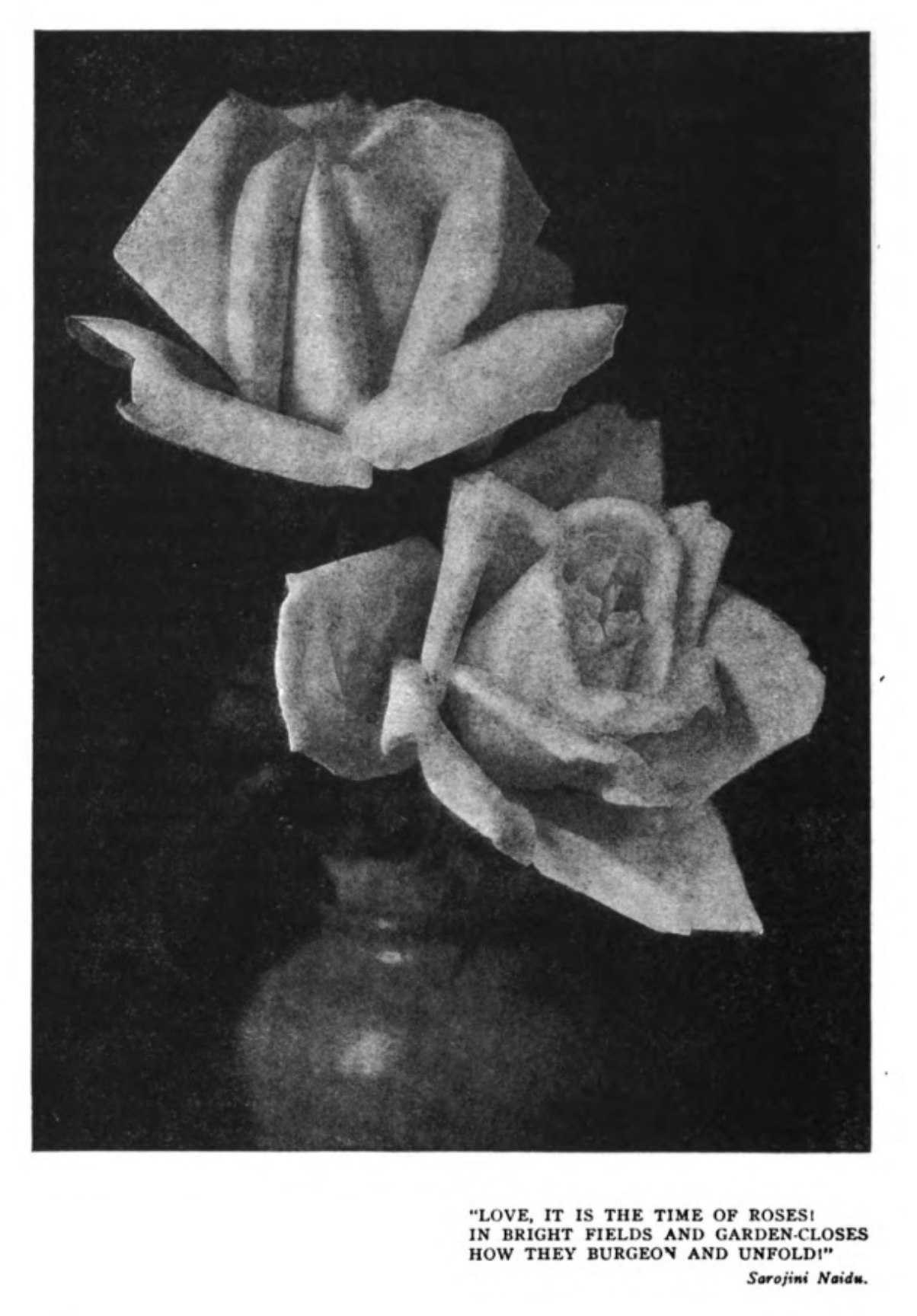The time of roses.
"The time of roses." Touchstone 4, no. 6
(March 1919): 468-469.
[https://library-projects.providence.edu/rosarium/view?docId=tei/rg0032.xml]

The rose is unchallenged Queen of the garden. What would any patch of flowers be without this beloved sovereign! Even the smallest of gardens does not seem complete without the rose, and Nature, the kind mother, has provided this exquisite flower for every sort of position that human heart could ever wish from those that creep upon the ground to those that climb entirely over the house.
Roses might be placed in six divisions, from the landscape-architect’s point of view. Where the inexperienced garden-maker is building his ideal he must plan for roses for all positions. First there are the creeping roses for ground cover, and over embankments. This group includes the wichuraianas whose shiny leaves are almost evergreen. The next group in point of height are the Polyanthus or baby ramblers used for edging walks or flower beds. These are hardy, good bloomers which flower until frost nips their enthusiasm. The white baby ramblers show from fifteen to forty cream white blossoms on a single branch. Cecile Brunner’s pink and cream blossoms are fragrant as well as lovely. Orleans is almost as brilliant a red as the geranium at its edges but its center is white. Marie Pavie is white with pale rose heart.
Tea Roses and their hybrids, next in height, are exceedingly popular not only because they are liberal bloomers but because of their great beauty of form and color. Among the pinks is the lovely Mamam Cochet, Ophelia, Killarney, Madam Caroline Testout and the sweet La France. There is a white Killarney of great popularity and several good reds and scarlets among which is Richmond and General MacArthur.
Hybrid perpetuals are the next in point of height. They grow everywhere, even thriving in a clay soil. In this group, which blooms only in the spring, and reaches an average of about three feet in height, are many favorites, chief of which are the white American Beauty, General Jacqueminot, Gloire de Chedane Guinoisseau and Paul Neyron.
Single specimen or shrub roses used alone, as a hedge a wind break or in groups, include the hardy free-blooming Rugosas, moss and sweet briers.
Climbing roses for arches, trellises, doorways, porches, pergolas, fences and about trees include ramblers, wichuraianas, multeflores and their hybrids. Every color of the rainbow with the exceptions of blue is echoed in climbing roses. Some growers have succeeded in making green and blue roses, not, however, to be recommended.

